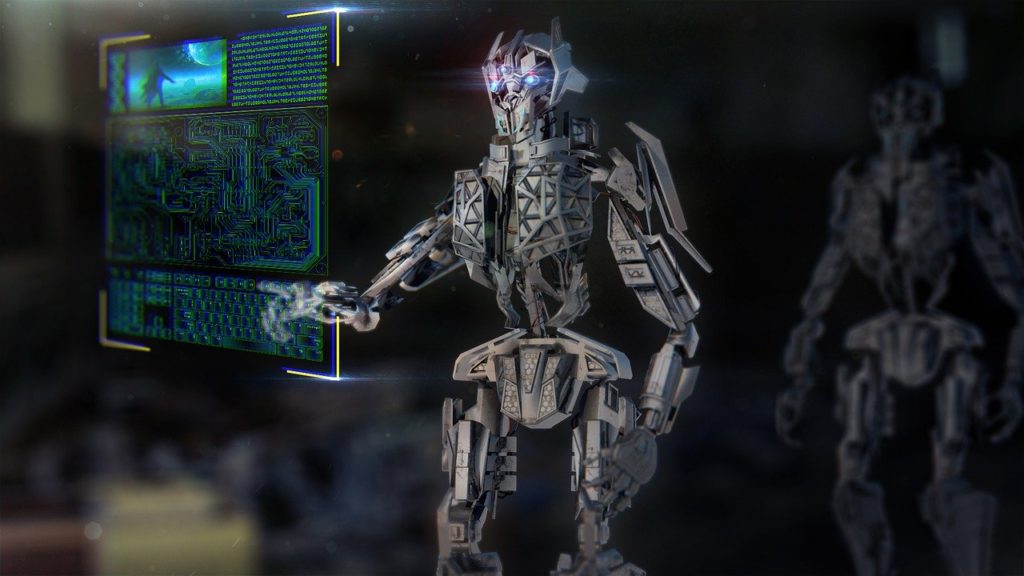Replaced by Machines
by Adam Rosenfield, SHRM-CP

“We’re all being replaced by machines.”
It’s a statement you’ve probably read multiple times over the past one, two, or five years. All the experts say that machines are going to take our jobs, and there’s nothing we can do about it.
That’s not necessarily true though. If you’ve ever had an interaction with really bad automated support that never answered your question and made you want to throw your computer against a window, you know there’s a long way to go.
What we’re seeing instead is a slow erosion of not only certain tasks in specific roles, but certain roles where most of the tasks can be automated. So, don’t worry, most of your jobs aren’t going anywhere.
The McKinsey Global Institute released a report back in 2018 that said the three most in demand skills for workers of 2030 are going to be higher cognitive skills, social and emotional skills, and technological skills.
If you’re wondering what this looks like in practice, let’s break it down:
Higher cognitive skills: When we say higher cognitive skills, we mean advanced literacy, writing, quantitative and statistical skills, critical thinking, and complex processing skills. Think of how many human jobs use these. Could a computer really do all of them at once?
Social and emotional skills: These include empathy, advanced communication, and negotiation, as well as adaptability. Think of these when you’re walking a co-worker through an issue, or trying to sympathize with something tragic that happened, or even as you navigate a merger or executive transition. There are always going to be certain social skills that humans innately understand but a machine can’t pick up.
Technological skills: These are your advanced skills. According to McKinsey, they include data analysis, engineering, and research, as well as IT functions. As companies continue to dive deeper in tech and recruit developers, engineer, or other technical experts, these skills sets will be in more demand.
So, What Is Going Away?
There are jobs that are slowly going away due to the fact that they involve generally repetitive motions and can be automated as well. Positions like receptionists, telemarketers, proofreaders (as spell checks continue to get better), or even retail salespeople will slowly go by the wayside as automation and AI step in.
What Won’t Be Going Away?
While Compensation and Benefits Managers may slowly be phased out due to data, Human Resources as a whole will not. While certain HR functions – namely payroll, legal onboarding, certain parts of the recruitment process, and benefits – can be automated, the People Ops strategy requires complex thinking, especially as you deal with company changes like mergers and acquisitions, diversity and inclusion initiatives, or performance management. You must have someone in the function who has the cognitive bandwidth to manage fluid employee issues and can get at the heart of how to mix human emotion with a productive workplace. The HR job of the future relies less on the basic task and more on how you can mix data analytics with high functioning people processes.
What else can’t AI replace? How about writers or marketers? Though Google has tried, the human element of understanding and writing/marketing to your audience is understated. Editors are especially at a premium – while AI can create pieces, there is still that nuance in writing and publishing that AI is not ready for.
Can AI plan events? Or design with emotion? Not really. That’s why event planners and graphic designers, as well as the PR pros that market them, are here to stay. There is that cognitive emotion you get in a human design that AI doesn’t give you.
What Can You Do To Prepare?
The companies that are prepared for the future will be the ones who innovate while also bolstering their own employees. Those that are antagonistic towards it will lose out.
Innovation and preparation start with your relationship with technology. If you view purchasing software for your company as purchasing for the sake of just having technology, you’ll end up with more issues that you bargained for. Technology won’t necessarily replace humans, but it can aid them in doing jobs more efficiently if they are correctly trained and understand the use cases around the software.
It also starts with finding leadership and training opportunities for your employees. Are there technical classes you can provide for less tech-savvy employees or leadership classes you can send your rising employees to? Are you implementing proper feedback circles and mechanisms to ensure that they are developing?
Another great way to test and grow your employees is by giving them stretch projects or leadership roles on an important strategic company project. The more they hone these skills, the easier it’ll be for you once it comes time to promote.
Staffing Needs
As we’ve seen the employment landscape change, we’ve seen new staffing models pop up. Many companies are using fractional teams, part-time workers, and gig workers, but how are you effectively hiring, onboarding, training, and integrating them? Sometimes, working with outside help is best for this — you’re able to focus on the core competencies of your business while other experts help out on your auxiliary tasks. Part-time workers can be difficult to manage as it relates to company culture integration, payroll, and other items, but they can serve in key ways for strategic projects or initiatives.
Having a partner like AustinPeopleWorks who can handle important People Ops tasks and effectively manage these different kinds of employees can only make the transition to this new world of work easier for you. Give us a shout. We’d love to chat with you about what we’re doing to help companies level up in the new tech-focused era.
________________
If you want to know more about how AustinPeopleWorks can help you with your human resources needs, please contact us at https://austinpeopleworks.com/contact
